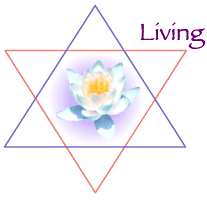|
|||||||||||||||||||||||||||||
|
|
||||||||||||||||||||||||||||
|
||||||
The conditions for Karma yoga |
||||||
Karma yoga implies perfection in action. The concept of perfection is subjective, it means that you do your best, you try to be efficient by applying your own skills to a particular action. Karma yoga is defined as unselfish activity (nishkam karma yoga), meaning the action is performed without any desire, expectation or personal motive. A real karma yoga frees one's self from attachement to the results at any level, material, emotional, intellectual. In karma yoga, one needs to keep self awareness while performing the action. Externally, you have to be aware of the unfolding, of yourself executing the action and to know the best way to do it. Internally, you have to keep the witness attitude or drashta, in order to observe any mental reaction coming to your mind regarding the action itself or the relationships during action. |
||||||
How to practise Karma Yoga |
||||||
It is not so easy to practise karma yoga. In theory, every act may become a karma yoga and it is actually the final point that we expect to reach. If you look carefully, you will understand how difficult it is, at first step, to give concrete expression to the real spirit of karma yoga, especially in usual activities. - Karma yoga is an action performed with full awareness. The witness or drashta runs the show because it is that quality of observation only which can give the opportunity to follow the action, to see one's self in action and to confront the psychological background : the way to prepare the action and to undertake it, the personal feelings during action, the mental reactions in link with action and interactions. In order to maintain this high level of self awareness in the hurly-burly of life, we need a specific training. Antar mauna, the meditation practice of inner silence, has to be practised as it learns how to keep the witness attitude in relation to the surrounding and the inner mental expressions. - In daily life, we are always in a hurry, going from one thing to another. The dominant feeling is that we have to finish the current action. This strong impulse is coming from society, the way of life, the worry to have some rest or pleasure after being relieved of the usual obligations. - Most of our actions are mainly motivated by personal gain or fulfilment of ambitions. The selflessness quality is very difficult to reach in professional life as well as in family life, especially when we are not used to. Ashrams and yoga centers are the best places to imbibe and live the spirit of karma yoga : the organization and spiritual atmosphere are very auspicious ; sharing with other people the same spiritual vision (sangha) helps a lot ; usually, one has less material needs and emotional concerns in the requested work ; it is easier to give up usual behaviour and mental habits and to open one's self to subtler dimensions of life ; one can let the things coming naturally as the concept of duty is different ; yoga practices may provide the necessary training and improve the quality of awareness. |
||||||
Union of karma and bhakti : to be a medium |
||||||
Due to our ignorance, we think we are the doer. We do not realize that the supreme Intelligence works silently within our physical and mental framework. We are only the « instrument » in Her hands, we are guided by Her. Once we have perceived this deep underlying truth, any activities are equally accepted, we do not identify with outer or inner actions, we free ourselves from the grasp of ego and we start to feel the higher force or Intelligence which is implemented in every one and in the whole universe. When we do not identify as the one who acts, thinks or feels but realize we are a medium, the state of mind is completely different. The outer task becomes spiritual, it is no more social or family obligations but occasions to serve the divine. We fulfill our duties with efficiency, doing things as best as we can, keeping equanimity of mind and evenness of temper. We have no expectation because we know the results are not our concern. Action is going on through us, we invest our concentration and all our capacities in a neutral manner, without attachment or anxiety. This is how we can free ourselves from connections to karma. All our actions serve our personal quest because they stop to imprison us within a self-centered world and they allow us to remove the influence of samskaras, the traces left by old memories. The advise of bhakti yoga is also to offer every action to the holy spirit. Bhakti and karma yoga gather in this essential attitude which change the human existence into a continuous flow of perfect and selfless actions. |
||||||
“ Nishkamya Karma or the unselfish performance of the duties of life (swadharma) is the first step towards the attainment of the final beatitude of life.” |
||||||



